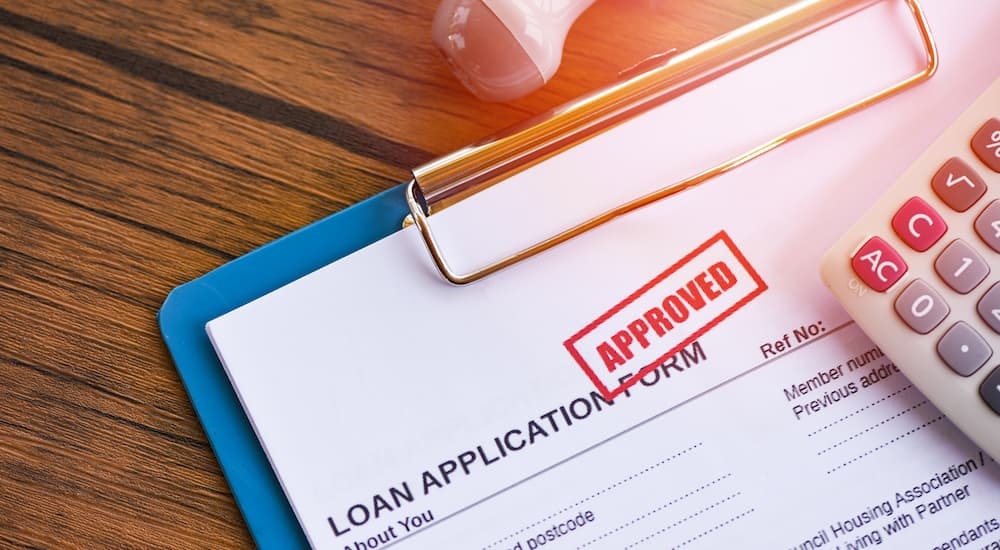
From Credit Scores to Subprime Auto Loans: Here Are Your Financing FAQs
You found the perfect vehicle, discussed a fair price, and are ready to finalize the sale. However, you soon realize your credit score isn’t high enough to secure a traditional automotive loan. The vehicle of your dreams is suddenly out of reach, but does this mean you’re out of options?
Bad credit auto loans make it possible for an individual with a limited credit history or lower credit score to purchase a vehicle. Dealerships like ours recognize the need for alternative solutions because we know that financial turmoil can affect anyone at any time. Regardless, every customer should have the opportunity to invest in a reliable vehicle that helps them rebuild their credit, establish a credit history, and financially recover. Faith’s Automotive is here to help, starting with answering all your finance questions.
What Does It Mean to Finance?
You have three options when you’re ready to purchase a car, truck, or SUV. First, you can pay cash for the vehicle, which is uncommon since most people don’t have that much money available. Second, you can sign a lease, which is the same as renting a car for a predetermined period and promising to stay within the mileage and usage limits. Third, you can finance your purchase with a lender, which is the most popular choice for customers.
By financing your purchase, you’re relying on a lender to loan you the money and make a promise to repay the loan. It’s like an “IOU” for a big purchase. The lender looks at your credit history, employment, and other factors to determine the risk of agreeing to the loan. Once approved for the loan, you’ll pay the principal amount (the total purchase price) plus interest or what the lender charges you for the loan.

What Is A Credit Score?
Every loan comes with a certain degree of risk, which lenders evaluate based on your credit score. This three-digit number ranges from 300 to 850 and reflects your creditworthiness. But how is your credit score calculated, and what is a good or bad score?
Your credit score is determined by the major credit bureaus and their evaluation of several factors. For example, 35% of your score is determined by your payment history, which shows your ability to withhold your end of the “IOU.” Your score is also impacted by the types of credit you have (auto loans, credit cards, etc.), the amount of unpaid debt or how much you owe, the length of your credit history, and how much of your available credit you’re using. Late payments and maxing out your credit cards negatively impact your score just as readily as if you haven’t yet built your credit history.
As you check your credit score, you’ll notice it ranges according to the different bureaus. Likewise, no set number defines a good or bad score. Instead, the guidelines are generalized and vary by lender. For example, most good, very good, and excellent scores range between 670 and 850, while fair and poor scores range between 300 and 669.
How Does My Credit Score Impact My Ability to Purchase a Vehicle?
Lenders look at your credit score to evaluate risk or the likelihood you’ll repay the loan. For example, your best friend lost her job and needs to borrow $2,000 to cover her rent and utilities. She has several job interviews lined up and has always repaid you in the past. As a result, agreeing to the loan is easy because the risk is minimal. But what if your friend wasn’t as responsible with her money and still owed you $4,500 from the last loan? Would you be as willing to take the risk?
The same applies to lenders as they look at your credit score. The higher your score, the less risk you won’t repay the loan. However, that doesn’t mean individuals with low credit scores or limited credit histories don’t have the opportunity to purchase a vehicle. Some lenders offer subprime auto loans that acknowledge the risk and help individuals rebuild their credit one payment at a time.
What’s The Difference Between A Prime And Bad Credit Loan?
There are two types of loans: prime and subprime. Individuals with higher credit scores typically qualify for prime or superprime loans. These loans are attractive because they offer more competitive interest rates, meaning the individual pays less to borrow the money. This lower interest rate is a perk of having a higher credit score and posing less risk to the lender.
Individuals with fair credit scores usually qualify for subprime or bad credit loans. These loans work the same as a prime loan but have a few modifications. For example, they often require a larger down payment to instill confidence in the lender. Likewise, lenders mitigate any risk and protect themselves by charging higher interest rates and extending the period of the loan. This extension offers a twofold benefit because, by extending the loan, your monthly payments are lower; however, it also means you’re paying more in interest.

What Is An Interest Rate?
An interest rate is a lender’s way of mitigating the risk of approving a loan. Every loan presents some risk of default, but that degree is measured according to your credit score. For example, individuals with higher scores, known as prime borrowers, qualify for lower interest rates and might pay 4.9% interest on a new car loan. In contrast, a bad credit borrower with a fair credit score might pay 16% interest on a used car loan.
How Can A Car Loan Help Me Rebuild My Credit?
Imagine you’re a young professional with your first job and desperately need a new car. Unfortunately, because of your age, you don’t have any credit history and, therefore, don’t qualify for a prime auto loan without a co-signor. Now, imagine another scenario. You lost your job last year and fell behind on all your payments. As a result, your credit score has taken a dramatic hit, making it impossible for you to finance a reliable vehicle that will get you to work and back on your feet.
A car loan, even a bad credit auto loan, can help in both situations. A bad credit auto loan doesn’t discriminate because you have a limited credit history or a lower credit score. Instead, it makes it possible to find your financial footing by helping you secure financing for a reliable vehicle. In other words, a car loan can help break the cycle of bad credit.
Think about the factors that impact your credit score. For example, payment history makes up 35% of your score, the most of any other factor. So, by securing a car loan and making your payments on time and in full every month, you can slowly rebuild your score and establish a strong credit history. In turn, the bad credit auto loan that got you behind the wheel of your latest vehicle lays the groundwork for a more stable financial future where you might qualify for a prime loan at a lower interest rate.
You Have Options
Whether you’re looking to establish your credit history or need to rebuild your credit after a financial setback, a bad credit auto loan can help. These loans prove it’s possible to break the cycle of bad credit by giving you the perfect opportunity to regain your financial bearings. In addition, with each payment, you can positively impact your score as the lender reports your loan activity to the major credit bureaus. In doing so, you reap the benefits of driving a reliable vehicle, knowing you’re proactively building better financial habits and proving your creditworthiness.


